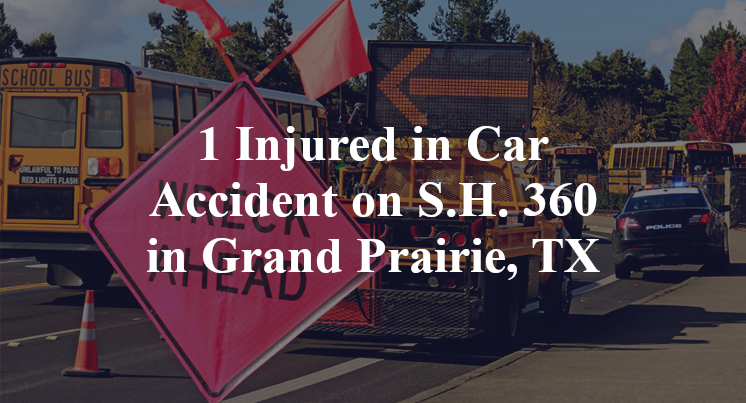1 Injured in Car Accident on S.H. 360 in Grand Prairie, TX
Tarrant County, TX — December 29, 2024, one person was injured in a car accident at approximately 2:00 a.m. along State Highway 360.
According to authorities, a 22-year-old man was traveling in a southwest bound Acura on S.H. 360 at Carrier Parkway when the accident took place.

Officials indicate that, for as yet unknown reasons, a collision took place between the front-end of the Acura and the rear-end of a Toyota RAV4 that had also been heading southwest on the highway. The man from the Acura reportedly sustained serious injuries over the course of the accident. It does not appear that anyone from the Toyota was harmed. Additional details pertaining to this incident are not available at this point in time. The investigation is currently ongoing.
Commentary by Attorney Michael Grossman
Crashes involving rear-end impacts often come with built-in assumptions—chief among them being that the driver in back was simply following too closely or not paying attention. But as someone who’s reviewed countless cases like this one from Tarrant County, I know that assumption can be both misleading and incomplete. When someone suffers serious injuries, as the driver of the Acura reportedly did, it’s essential to go beyond the obvious. That begins with asking three critical questions that every serious crash investigation must answer.
First, did the authorities thoroughly investigate the crash? While the basic outline of a rear-end collision might seem straightforward, the why behind it is often more complex. Was the Toyota RAV4 stopped or moving slowly in a live traffic lane? Was there heavy congestion, a sudden slowdown, or even a mechanical failure that forced it to stop? Did poor lighting or weather conditions obscure the vehicle ahead? A proper investigation should look at all of these factors through physical evidence, eyewitness statements, and any available traffic or surveillance footage. In a high-traffic area like State Highway 360, quick scene clearance is common, which can sometimes come at the cost of thorough documentation.
Second, has anyone looked into whether a vehicle defect could have played a role? If the Acura experienced a sudden loss of braking ability or a malfunction in its driver-assistance systems, it could have contributed to the crash despite the driver’s efforts to avoid it. Similarly, if the RAV4 had defective brake lights or unexpected mechanical trouble, that could have increased the risk of being hit from behind. These possibilities are not likely to be discovered without a forensic examination of both vehicles—something that must happen before they’re repaired or scrapped. Unfortunately, that step is often skipped if no one knows to ask for it.
The third and often most overlooked question is whether all available electronic data has been collected. Modern vehicles like the Acura and the RAV4 are typically equipped with event data recorders—black boxes that log speed, braking, and steering inputs in the moments leading up to a crash. This data can help determine whether the Acura braked in time, whether the RAV4 was moving or stationary, and how both vehicles were behaving in the seconds before impact. Investigators should also pursue dashcam footage, cell phone data, and traffic camera recordings, all of which can provide vital context that physical evidence alone may not reveal.
Answering these three questions is critical to making sure that no stone is left unturned in understanding the causes of a crash like this. Serious wrecks deserve serious investigation, not assumptions. Getting clear answers to these questions is crucial for those seeking to understand what happened and why—and it's the least that can be done to help those affected find the clarity and closure they deserve.

*We appreciate your feedback and welcome anyone to comment on our blog entries, however all visitor blog comments must be approved by the site moderator prior to showing live on the site. By submitting a blog comment you acknowledge that your post may appear live on the site for any visitors to see, pending moderator approval. The operators of this site are not responsible for the accuracy or content of the comments made by site visitors. By submitting a comment, blog post, or email to this site you acknowledge that you may receive a response with regard to your questions or concerns. If you contact Grossman Law Offices using this online form, your message will not create an attorney-client relationship and will not necessarily be treated as privileged or confidential! You should not send sensitive or confidential information via the Internet. Since the Internet is not necessarily a secure environment, it is not possible to ensure that your message sent via the Internet might be kept secure and confidential. When you fill out a contact or comment form, send us an email directly, initiate a chat session or call us, you acknowledge we may use your contact information to communicate with you in the future for marketing purposes, but such marketing will always be done in an ethical way.